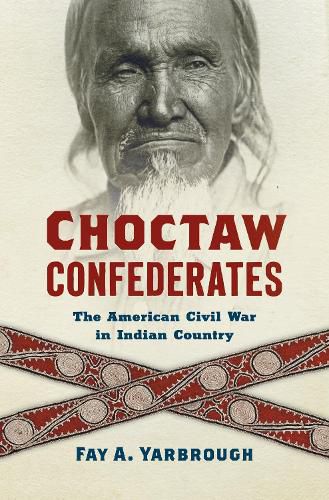Readings Newsletter
Become a Readings Member to make your shopping experience even easier.
Sign in or sign up for free!
You’re not far away from qualifying for FREE standard shipping within Australia
You’ve qualified for FREE standard shipping within Australia
The cart is loading…






When the Choctaw Nation was forcibly resettled in Indian Territory in present-day Oklahoma in the 1830s, it was joined by enslaved Black people-the tribe had owned enslaved Blacks since the 1720s. By the eve of the Civil War, 14 percent of the Choctaw Nation consisted of enslaved Blacks. Avid supporters of the Confederate States of America, the Nation passed a measure requiring all whites living in its territory to swear allegiance to the Confederacy and deemed any criticism of it or its army treasonous and punishable by death. Choctaws also raised an infantry force and a cavalry to fight alongside Confederate forces.
In Choctaw Confederates, Fay A. Yarbrough reveals that, while sovereignty and states' rights mattered to Choctaw leaders, the survival of slavery also determined the Nation's support of the Confederacy. Mining service records for approximately 3,000 members of the First Choctaw and Chickasaw Mounted Rifles, Yarbrough examines the experiences of Choctaw soldiers and notes that although their enthusiasm waned as the war persisted, military service allowed them to embrace traditional masculine roles that were disappearing in a changing political and economic landscape. By drawing parallels between the Choctaw Nation and the Confederate states, Yarbrough looks beyond the traditional binary of the Union and Confederacy and reconsiders the historical relationship between Native populations and slavery.
$9.00 standard shipping within Australia
FREE standard shipping within Australia for orders over $100.00
Express & International shipping calculated at checkout
When the Choctaw Nation was forcibly resettled in Indian Territory in present-day Oklahoma in the 1830s, it was joined by enslaved Black people-the tribe had owned enslaved Blacks since the 1720s. By the eve of the Civil War, 14 percent of the Choctaw Nation consisted of enslaved Blacks. Avid supporters of the Confederate States of America, the Nation passed a measure requiring all whites living in its territory to swear allegiance to the Confederacy and deemed any criticism of it or its army treasonous and punishable by death. Choctaws also raised an infantry force and a cavalry to fight alongside Confederate forces.
In Choctaw Confederates, Fay A. Yarbrough reveals that, while sovereignty and states' rights mattered to Choctaw leaders, the survival of slavery also determined the Nation's support of the Confederacy. Mining service records for approximately 3,000 members of the First Choctaw and Chickasaw Mounted Rifles, Yarbrough examines the experiences of Choctaw soldiers and notes that although their enthusiasm waned as the war persisted, military service allowed them to embrace traditional masculine roles that were disappearing in a changing political and economic landscape. By drawing parallels between the Choctaw Nation and the Confederate states, Yarbrough looks beyond the traditional binary of the Union and Confederacy and reconsiders the historical relationship between Native populations and slavery.